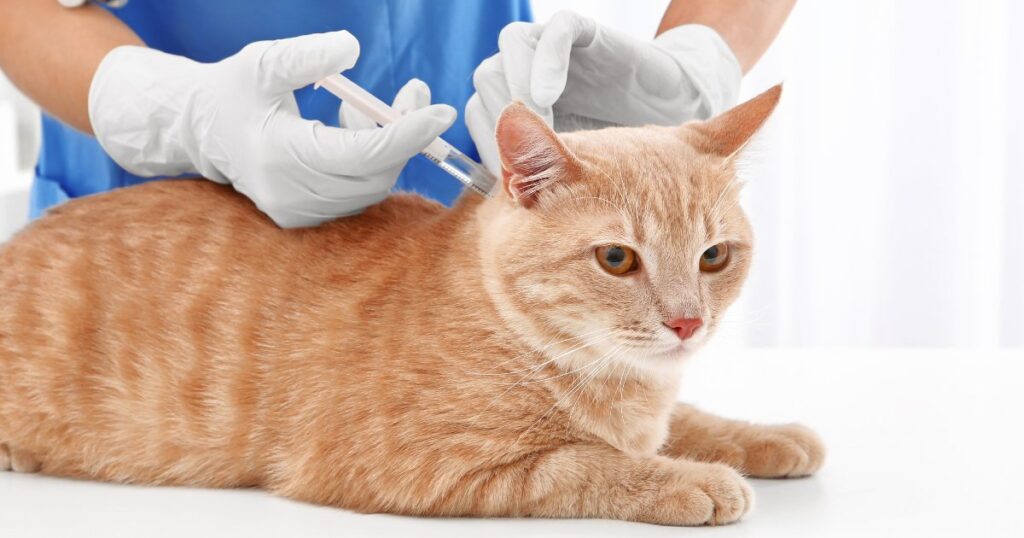Recommended Vaccinations for Cats and Kittens
The veterinarian recommended vaccinations for cats and kittens and when they should receive them. Vaccinations are essential for the health and well-being of cats and kittens. They help prevent several potentially deadly diseases. Here are the core vaccinations recommended for cats and kittens, along with the diseases and conditions they protect against:
- Feline Viral Rhinotracheitis (FVR) and Feline Calicivirus (FCV):
- Recommended for: All cats and kittens
- Administration: Typically given as a combination vaccine known as the FVRCP vaccine, which also includes protection against panleukopenia (see below).
- Prevents: FVR and FCV are common causes of respiratory infections in cats. These viruses can cause sneezing, coughing, nasal discharge, and more severe symptoms.
- Feline Panleukopenia (FPV):
- Recommended for: All cats and kittens
- Administration: Part of the FVRCP vaccine (as mentioned above).
- Prevents: FPV, often called feline distemper, is a highly contagious and potentially fatal disease that affects a cat’s blood cells and immune system.
- Rabies:
- Recommended for: All cats and kittens
- Administration: Typically first given at around 12 weeks of age, with a booster at one year, and then according to local laws and vaccine guidelines.
- Prevents: Rabies is a deadly viral disease that can affect all mammals, including humans. Vaccination is essential for public health and is often required by law.
- Feline Leukemia (FeLV):
- Recommended for: Cats that go outdoors, have contact with outdoor cats, or live in multi-cat households with FeLV-positive cats.
- Administration: Usually given to kittens at 8-12 weeks of age, followed by a booster three to four weeks later, and then annually for at-risk cats.
- Prevents: FeLV is a contagious disease that can weaken a cat’s immune system and lead to various health issues, including leukemia and lymphoma.
- Feline Immunodeficiency Virus (FIV):
- Recommended for: Cats that go outdoors and are at risk of FIV exposure.
- Administration: Vaccination is less common than other core vaccines. Discuss with your veterinarian.
- Prevents: FIV is similar to HIV in humans and can lead to a weakened immune system. The vaccine may not provide full protection but can reduce the risk.
It’s important to note that vaccination schedules and recommendations can vary depending on your cat’s age, health, lifestyle, and local regulations. Always consult your veterinarian to create a vaccination plan tailored to your cat or kitten.
Regular booster shots are often required to maintain immunity against these diseases. Keep accurate records of your cat’s vaccinations and follow-up appointments to ensure they receive the necessary boosters. Your veterinarian will provide guidance on when to schedule these booster shots.

